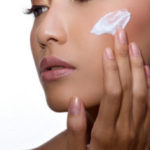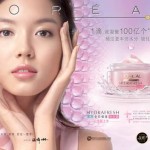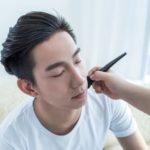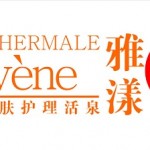Male Grooming Market in China: The Rise of Male Beauty
Male Grooming Market in China
Discover the latest industry trend for male’s grooming. Worldwide, cosmetic for men were disregarded for a long time, because of their own condition, men were considered as too virile and careless about their outer appearance. There has been a pivotal shift in male pampering culture during the last decade, giving rise to one of the fastest growing sub-sectors in the cosmetic industry: the male grooming, product that is only dedicated for men.
The number of men using grooming products has increased dramatically. Besides the traditional shaving products, deodorants, basic bath and hair care products, men are now willing to spend more time and money on a variety of personal care products. The demand for products, such as concealers, skin whitening solutions, sunscreens, cleansing products, moisturizers, anti-aging creams and so on has a high level of growth.
Social development
Along with recent lifestyle trends to live a healthier life, men around the world become increasingly more conscious about their outer appearance. This is especially the case in Asia were good looks traditionally are often directly correlated to values such as success. The portrayal of men in Chinese media, such as men’s lifestyle magazines or soap operas, as well as the big influence of a rather ‘metrosexual’ K-Pop culture, which dominates entertainment in Asia, only add to an increasing range of potential clients and a growing market.85% of Chinese men say, that they pay attention to their appearance, to not only impress their counterpart but also to satisfy themselves or to feel more confident.
Latest regional and global market trend
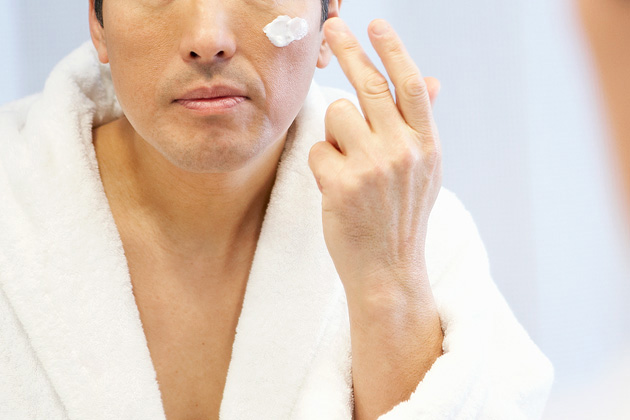
Source: Bloomberg.com
The global male grooming market has increased by 17.3% since 2012 and was worth about USD 20.3bn in 2015. It is expected to grow steadily and have a market size of USD 26.6bn by 2020, which represents a CAGR of 5.55% for the period from 2015 to 2020. (Other data suggest a CAGR of 7.60% or 9%.) Whilst in the most advanced markets of the Asia Region, South Korea, and Japan, it is socially encouraged to seek for the retaining of a youthful appearance, the actual growth potential of the market lies in populous India and China. China’s market already is the biggest, followed by South Korea, and is expected to grow further rapidly.
The data from 2011, 2012 and 2014 confirm: Men’s grooming market sales in China increased in one year by 17% to about RMB 6.4bn in 2012, up to RMB 10.5bn in 2014. Japanese based company Shiseido expects, that especially China’s men skin care market will maintain a growth momentum of over 10% in 2016.
These figures emphasize the development of an increasing acceptance of gender-specific beauty and personal care products among male consumers.80% of those are willing to spend about 25 minutes a day on skin care products.
Market Entry
Entering the global demand for men’s grooming products has proven to be rather difficult for established companies, which have spent years targeting female consumers. Brands like L’Oréal are still fundamentally associated with women, making it difficult for them, despite their immense investments in ‘men’-variant products, to reach the possible customer. This leaves opportunities for smaller competitors to join the market and meet the demand for men’s grooming products.
Opportunities and Digital Appearance
Further huge potential in the men’s grooming market in China arise, as customers move on to pricier categories, particularly eye care, serum, or facial cream products with makeup benefits.
Online accessibility and digital appearance play a major role: Cosmetics is one of the Top 3 product groups that is sold on E-Commerce platforms. In 2015 Chinese on average spent 3 hours and 5 minutes on digital media. Furthermore, 88% of Chinese men access beauty and fashion information online, the highest in all of Asia. Combined with its wide distribution of third-party online payment platforms, such as Alipay or Wechat’s build in function MyWallet.
Chinese men use seven grooming products on average while only three are exclusive ‘men’-variant products. Combined with the finding, that 60% of Chinese men believe that foreign personal care brands are of higher quality than home-grown brands, there is great potential for international brands to enter the market with a diverse portfolio of products tailored to Chinese men who are inclined to buy foreign products.
To know more about China’s market, contact our China consultants!
See also:
- Cosmetic Market in China is exploding
- Our latest post on Twitter about Chinese Millenials:
#ChineseMillennials don’t save much and their spending power will continue to increase https://t.co/esxxBHPrYA pic.twitter.com/hi5QTJGq7N
— Daxue Consulting (@DaxueConsulting) 2015年10月13日



